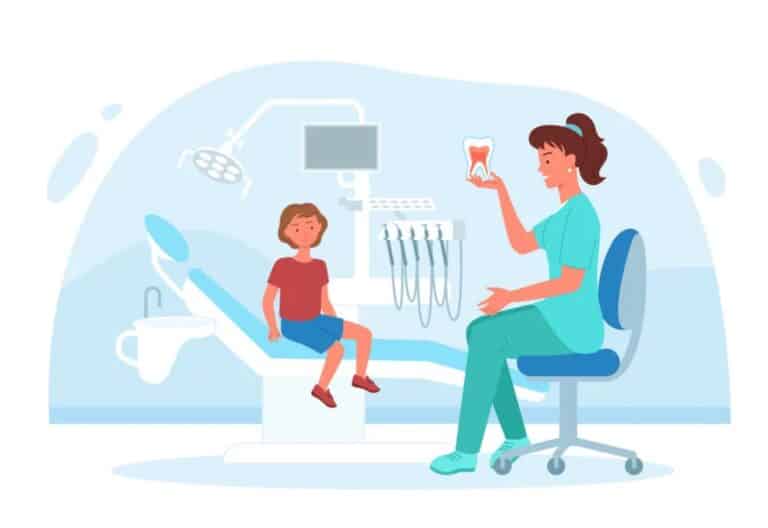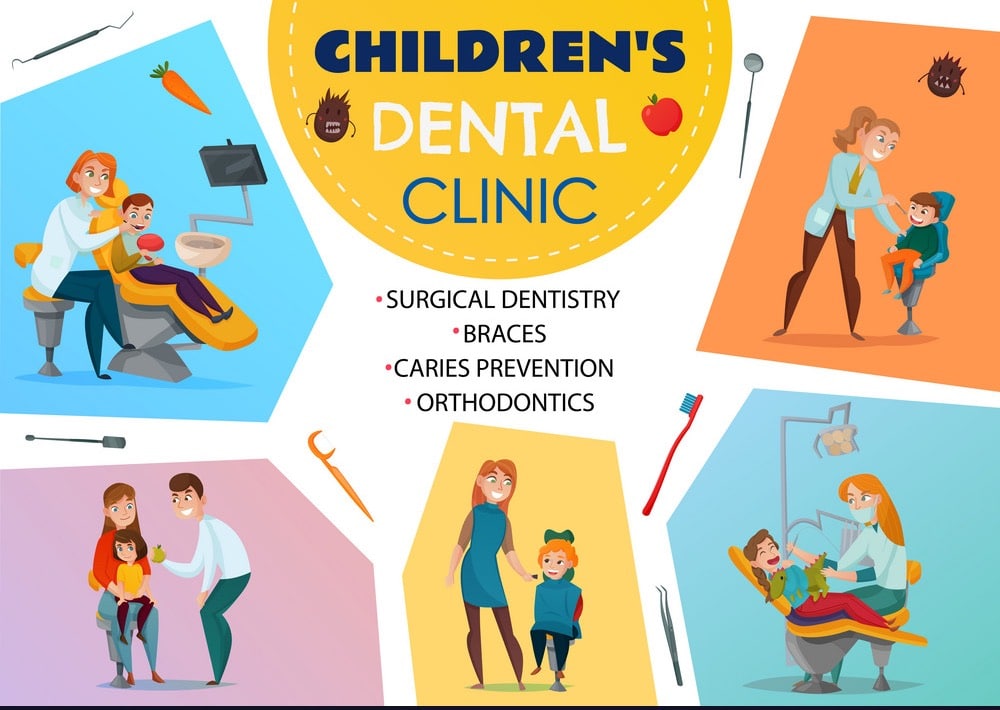Kids Dentistry Sydney


Dentistry for Children
Child Dental Benefits Schedule (CDBS) covers part or the full cost of some basic dental services for eligible children 0 to 17 years old.
To encourage patients and parents to maintain these preventative practices Dr Thakkar offers children 12 and under “no gap” check-ups.
Dr Thakkar cherishes the opportunity to encourage your children to love the dentist and love caring for their teeth. Preventive dentistry is at the core of her philosophy for health and wellness.
She prides herself on comprehensive check-ups that help your child along on their journey for healthy teeth and gums, and aims to promote the dental health of children as well as to serve as an educational resource for parents.
First Visit
It is recommended that a dental visit occurs after the presence of the first tooth or by a child’s first birthday. It is important to take care of our oral health from an early age to prevent future problems from occurring.
Early dental check-up helps in the detection of the early stages of tooth decay, modify aberrant habits, and treat them as needed and as simply as possible.
Dr Alps works alongside the parents by giving them a personalised program of preventive home care like brushing, flossing and fluorides, a caries risk assessment, information on finger, thumb, and pacifier habits, and may include advice on preventing injuries to the mouth and teeth of children, diet counselling, and information on healthy teeth growth and development.
Dr Alps is conscious of every child being unique in their confidence with new environments and around new people, and she always tries to go at the child’s pace. Her highest priority for children’s visits is that the visit is stress-free and a positive experience, which will lead to a lifetime of relaxed dental visits; so different from past generations.


A Playful Pleasant Experience
There are few pop culture references where dentists are not portrayed as strange sadistic old men! Finding Nemo is a perfect example of a dentist being cast as a villain.
The profession as a whole perhaps suffers from a poor portrayal. Dr Thakkar strives to rebel against this stereotype!
Much of dental anxiety and fear of the dentist stems from a negative childhood experience. The sights, sounds, smells and sensations can be quite overwhelming.
Dr Alps’s mission is to encourage our young patients to work towards independently maintaining their own dental and general health as a teenager and adults. It’s a long journey! A healthy mouth has a lifelong benefit to a person through improved nutrition and confidence. A positive dental checkup is the first step to a happy dental life. We make sure that your child’s first visit to the dentist is enjoyable, by working with them.
A Poetic Encouragement
“Oh Dr Alps is the dentist you need
To keep your teeth healthy and white indeed
She’s gentle and kind and she knows what to do
To make sure your teeth are shiny and new
So don’t be afraid, just take a deep breath
And visit Dr Alps for a smile that’s the best
She’ll make sure your teeth are strong and bright
And keep your mouth feeling just right
So come on down to Dr Alps today
And let her show you the dental way
To keep your teeth healthy and clean
And always have a smile that’s serene”.

Frequently Asked Questions
What to expect at Child's first dental visit?
Dr Thakkar recommends that infants and toddlers either accompany their older siblings or parents so that they become used to the dental practice environment. Their first few visits are just playtime ones, while the rest of the family are treated, and then graduating to rides in the dental chair. When they feel comfortable enough, we take some photos of their teeth and demonstrate healthy habits and oral hygiene techniques. We reward positive behaviour with little toys. We strive to get them ready for their first dental check-up and be excited about it.
Why Take Care of Baby Teeth early?
Baby teeth, also known as primary teeth, are important for a child’s overall health and development. Even though they will eventually be replaced by permanent teeth, it’s important to take care of baby teeth and maintain good oral health from an early age.
Here are some reasons why it’s important to take care of baby teeth:
Baby teeth play a crucial role in a child’s development. They help to develop proper speech and chewing skills, and provide a guide for the permanent teeth to come in straight.
Baby teeth help to maintain good nutrition. Children need healthy teeth to chew and break down food properly, which is essential for proper growth and development.
Baby teeth help to preserve space for the permanent teeth. If a baby tooth is lost too early, the permanent tooth may not have enough room to come in, which can cause crowding and misalignment.
Baby teeth are important for a child’s self-esteem and confidence. Children with healthy teeth and a beautiful smile are more likely to have positive self-esteem and confidence.
Baby teeth are important for a child’s overall health. Poor oral health in childhood can lead to problems later in life, such as tooth decay, gum disease, and even heart disease.
To take care of baby teeth, it’s important to start oral hygiene habits early. This includes brushing the baby’s teeth twice a day with a soft-bristled toothbrush and a small amount of fluoride toothpaste, and cleaning the gums with a damp cloth or gauze after each feeding. Regular dental check-ups are also important to identify any problems and provide treatment as needed.
Diet and Oral Hygiene Advice
Diet and oral hygiene are important for maintaining good oral health in babies, toddlers, and children. By following some simple guidelines, you can help your child develop healthy habits that will last a lifetime.
For babies, it’s important to start oral hygiene early. Clean the baby’s gums with a damp cloth or gauze after each feeding, and begin brushing the baby’s teeth with a soft-bristled toothbrush and a small amount of fluoride toothpaste as soon as the first tooth appears.
As children grow, it’s important to continue practicing good oral hygiene. This includes brushing the child’s teeth twice a day with a soft-bristled toothbrush and a pea-sized amount of fluoride toothpaste. Flossing should also be introduced once the child has two teeth that touch.
It’s also important to pay attention to the child’s diet. Sugary and acidic foods and drinks can cause tooth decay and should be limited. Instead, encourage the child to eat a balanced diet that includes plenty of fruits, vegetables, and whole grains. Offer water instead of juice or sugary drinks, and avoid letting the child snack constantly throughout the day.
Regular dental check-ups are also important for children. The American Academy of Pediatric Dentistry recommends that children see the dentist by their first birthday, or within six months of the eruption of their first tooth. Dr Alps can identify any potential problems and provide treatment as needed.
By practicing good oral hygiene and following a healthy diet, you can help your child maintain good oral health and develop healthy habits that will last a lifetime. Talk to Dr Alps for more information and advice on caring for your child’s teeth and gums.
Sports Mouthguards
Dentist-fitted mouthguards have been shown to reduce tooth damage as well as concussion when compared to store-bought mouthguards. It also allows better breathing and talking to allow children to play to their full potential.
Mouthguards are essential for any contact sport and recommended in most of the sports especially rugby, soccer, hockey, touch football, softball and most other popular sports.
Each sport might require a different thickness or design. Discuss this with us during your consultation, so that your mouthguard can be designed to be both maximally effective and comfortable.
How Baby's Teeth Develop?
Baby teeth, also known as primary teeth, are the first set of teeth that develop in a child’s mouth. These teeth are important for a child’s overall health and development, and will eventually be replaced by permanent teeth.
Baby teeth begin to develop in the fetus, with the first teeth starting to form around the sixth week of pregnancy. By the time the baby is born, there are typically 20 primary teeth present in the gums, with the first tooth usually appearing around six months of age.
The process of tooth development involves several stages. First, the tooth bud, or germ, forms in the jawbone. This is followed by the formation of the enamel, which is the outer layer of the tooth. The enamel is the hardest substance in the body and provides the tooth with its strength and durability.
Next, the dentin, or the inner layer of the tooth, begins to form. The dentin is a softer tissue that provides support for the enamel and contains tiny tubes that connect to the tooth’s nerve.
Finally, the tooth erupts, or emerges, from the gums. As the tooth emerges, the gum tissue surrounding the tooth begins to harden and form the periodontal ligament, which anchors the tooth in place.
Baby teeth typically begin to fall out and be replaced by permanent teeth around the age of six. This process, known as exfoliation, continues until the child has a full set of permanent teeth, typically by the age of 12 or 13.
By understanding how baby teeth develop, you can better care for your child’s teeth and support healthy development. Talk to Dr Alps for more information and advice on caring for your child’s teeth.
Orthodontic Assessment for Teenagers
Orthodontic assessment is an important part of maintaining good oral health for teenagers. Orthodontic treatment, such as braces or clear aligners, can help to straighten the teeth and correct misalignment, providing a beautiful and healthy smile.
The American Association of Orthodontists recommends that children have an orthodontic assessment by the age of seven. At this age, the permanent teeth are starting to come in and any potential problems with the bite or alignment of the teeth can be identified and treated.
During an orthodontic assessment, Dr Alps will examine the teeth, jaws, and bite to identify any problems or potential problems. Dr Alps may use x-rays, photographs, and impressions of the teeth to create a detailed record of the child’s dental health.
Based on the assessment, Dr Alps will recommend a treatment plan. This may involve orthodontic treatment, such as braces or clear aligners, to correct misalignment and improve the function and appearance of the teeth.
Orthodontic treatment can have many benefits for teenagers. Straight teeth are easier to clean and maintain, which can help to prevent tooth decay and gum disease. Correctly aligned teeth can also improve chewing and speaking, and can provide a more confident and beautiful smile.
If your teenager has not had an orthodontic assessment, it’s important to schedule one as soon as possible. Early treatment can provide the best results and can help to prevent more complex and expensive treatments in the future. Talk to Dr Alps for more information and to schedule an assessment.
How to Brush Your Child’s Teeth?
Brushing your child’s teeth is an important part of maintaining good oral health and preventing tooth decay. By teaching your child proper brushing techniques and establishing a regular brushing routine, you can help your child develop healthy habits that will last a lifetime.
Here are some guidelines for brushing your child’s teeth:
Start brushing as soon as the first tooth appears. Use a soft-bristled toothbrush and a small amount of fluoride toothpaste, and brush in gentle circular motions.
Brush twice a day, in the morning and at night. This will help to remove plaque and food debris, and prevent tooth decay.
Use a pea-sized amount of fluoride toothpaste. Too much toothpaste can cause the child to swallow too much fluoride, which can be harmful.
Supervise brushing until your child is able to brush on their own. This will ensure that the teeth are being brushed properly and that the child is not swallowing too much toothpaste.
Make brushing fun. Use a toothbrush with your child’s favorite character on it, or play fun brushing songs to make the experience enjoyable.
Floss as soon as your child has two teeth that touch. Use a piece of floss wrapped around your fingers, and gently slide the floss between the teeth and along the gum line.
Visit Dr Alps regularly. Dr Alps can provide professional cleanings and check-ups, and can provide guidance on proper brushing and flossing techniques.
By brushing your child’s teeth twice a day and visiting Dr Alps regularly, you can help to maintain good oral health and prevent tooth decay.
How to maintain good dental health for children?
To keep the children’s teeth healthy, you need to clean them twice a day. Once in the morning and once before bedtime should do it. Refrain from giving them too many sugary foods and drinks. As much as possible, give your kids healthy and unprocessed food like vegetables, meats, and cheese.
Also, regularly check for signs of decay like white patches or grey spots. This way, you can prevent the cavities from worsening. Visit your dentist right away once you notice these signs.
Choosing the Right Toothbrush
The best toothbrush for your child is a soft children’s toothbrush. Get the ones with small round heads, bristles of varying height, and a non-slip handle. You can choose either an electric or manual toothbrush, whichever is more appealing to your child. The key is to get them engaged so the habit can start.
Make sure to clean the toothbrush after every use with tap water. Allow to air-dry and store it in a clean place. Keep it from touching other used toothbrushes to avoid any germs from transferring. Lastly, ensure that your child’s toothbrush is replaced every 3-4 months.
Start Regular Check-ups at the Dentist
To help maintain good dental health for babies and toddlers, it’s important to have regular visits to the dentist after their first teeth appear. Introduce them to dental professionals positively and educationally. Never use dental check-ups as a means to frighten them because it will retain a negative perception in their minds. Teaching your kids the importance of regular check-ups at the dentist will assure them of good oral health when they grow up.
Dr Alps Thakkar is dedicated to making the visit to a dentist a safe and comfortable experience for children of all ages.



